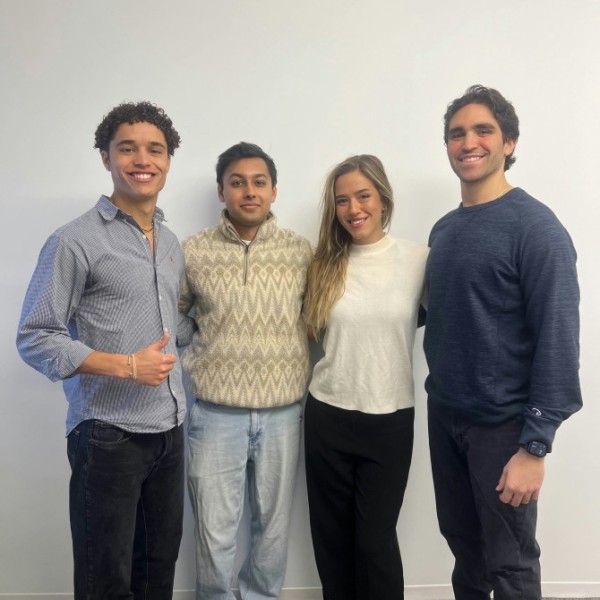Sarah Flanagan ’26 has known since high school that she wanted a career in agriculture to help reduce global food insecurity. An agricultural sciences major, Flanagan has taken impactful classes in plant genetics, soil science and many other topics. But one of her most formative learning experiences has been outside the classroom, in a summer research internship that enabled her to synthesize and apply her academic work.
“Participating in this internship helped me confirm that research is something I enjoy doing and want to continue doing in grad school,” she said. Flanagan was one of six undergraduate interns who worked over summer 2024 with Quirine Ketterings, professor of nutrient management in agricultural systems. “In my classes, I’ve done some DNA extraction and soil sampling, and I used that knowledge to help me in the internship. Over the summer, I learned lab techniques and research methods that will definitely help me in future classes. So the internship experience has brought everything full circle. It all builds on each other.”
Ketterings leads the Cornell Nutrient Management Spear Program and seeks to improve growers’ soil fertility and crop productivity while preserving natural resources. She conducts some of her research at Musgrave Research Farm in Aurora, NY, one of the nine statewide research farms managed by the Cornell University Agricultural Experiment Station (Cornell AES). Almost all of the farms – from Long Island to the North Country to Ithaca – regularly host classes and student interns, from Cornell and other institutions.
“We’ve had summer interns at Aurora for 24 years, to benefit our research, and to benefit students’ learning,” Ketterings said. “I want my students to learn what it takes to do good research and to understand that Cornell has land-grant responsibilities to produce applied research for our farmers. The work the students are doing in these internships is outcome-based, it’s relevant and they’re contributing to something bigger.”
Flanagan’s internship included lab and field work, and traveling to farms across upstate New York with fellow interns, staff and Gurpreet Kaur, a Ph.D. student in Ketterings’ lab, to sample soil and assess the impact of manure application on soil microbiomes. She co-presented her findings at Musgrave farm’s annual Aurora Field Day, together with Kaur and others on the team.
“Presenting in front of the growers was a unique experience,” Flanagan said. “Dr. Ketterings is always pushing me to try something new and get me out of my comfort zone, and she’s given me a lot of opportunities to do that, which has greatly improved my confidence and communication skills.”












